- Home
- About Us
- Membership
- Information for Parents
- Annual Conference
- Training
- Publications/Products
|
From the Bench to the Field: Judicial Perspectives and Emerging Trends in Child Welfare This dynamic and interactive workshop offers a rare opportunity to hear directly from the bench about how child welfare decisions are made—and what providers can do to support better outcomes for families. The session explores how judges interpret and apply child protection laws, balance safety and reunification goals, and respond to emerging issues such as trauma-informed practice, racial and cultural equity, and meaningful family engagement. The workshop emphasizes the essential connection between courts and frontline providers, including how visitation professionals, caseworkers, and family service providers can work in alignment with judicial expectations. It will explore how provider documentation, communication, and client interactions can influence the court’s understanding of a family's progress and needs.
Judge Foster presides over cases involving juvenile delinquency and unruliness, child neglect and abuse, termination of parental rights, parentage, custody, and child support. She is a member of the Blount County, Knox County, Tennessee, American Bar Associations, the Tennessee Council of Juvenile and Family Court Judges, the Tennessee Council of General Sessions Judges, and the National Council of Juvenile and Family Court Judges. In 2017, the Tennessee Supreme Court appointed her to the Tennessee Board of Law Examiners Investigatory Committee, a role in which she continues to serve. She is the Eastern Grand Division Judicial Representative to the Tennessee State Council for the Interstate Compact for Juveniles, she is appointed to the Multidisciplinary Task Force for the Tennessee Administrative Office of the Courts Court Improvement Program, and she Chairs the Tennessee General Assembly’s Committee on Incarcerated Parenting Plans. She has represented Tennessee’s judiciary at the National Judicial Academy on Reasonable Efforts, the Anne E. Casey Foundation’s Family First Conference, and Project ECHO. Under Judge Foster’s leadership, the Blount County Juvenile Court established a Model Foster Care Review Board; initiated the use of H.A.B.I.T. therapy animals; transformed unused space into trauma-informed victim waiting rooms; and established a Free Little Library in the Juvenile Court lobby. In 2023, Blount County Juvenile Court was selected as a National Council of Juvenile and Family Court Judges’ Implementation Site. In 2024, Blount County Juvenile Court was awarded grant funding to create the first Intensive Outpatient Substance Use and Mental Health Program for adolescents in Blount County. That year, the Court implemented Journey Court, a juvenile specialty court for co-occurring substance use and mental health disorders. In 2025, Blount County Juvenile Court will bring a Safe Baby Court to Blount County as part of the Tennessee Zero to Three Initiative. Judge Foster is the author of Astronaut Noodle on Planet Velocity, a children’s picture book. She is a National Academy of Sports Medicine Certified Personal Trainer and Fitness Nutrition Specialist, a TRX Qualified Coach and Level I TRX Yoga Instructor, and a Yoga Alliance Registered Yoga Teacher. She loves yoga, swimming, cycling, weight training, kayaking, and hiking. She can sometimes be found teaching a free yoga class in the park to her colleagues, attorneys, and courthouse employees. Judge Foster and her husband have three adult children and live in Blount County, Tennessee, USA. Through the Eyes of a Survivor: Reimagining Support in Child Welfare Nevaeh Gilmore shares her journey from surviving a decade in foster care and enduring physical, mental, and sexual abuse to becoming a fierce advocate and changemaker in the field of child welfare. Now thriving as a mother, wife, and professional, Nevaeh brings her lived experience to the forefront—challenging providers, systems, and support professionals to reimagine how we engage with, support, and empower those impacted by trauma. Drawing from her own story of resilience and transformation, Nevaeh explores what it truly means to center survivor voices in child welfare practice. She will highlight critical gaps in current systems, illuminate how well-intentioned services can unintentionally harm, and provide a roadmap for more empathetic, empowering, and survivor-informed care.
During high school, her involvement in the Family, Career, and Community Leaders of America (FCCLA) at both state and national levels sparked her desire to make a meaningful difference. Through this experience, she discovered her calling to support others, believing in the potential for beauty to emerge from even the darkest times. Today, Nevaeh feels privileged to work with survivors, guiding them in their journeys to transform pain into strength and take ownership of their stories. Her journey is a testament to resilience, and she continues to inspire hope, healing, and self-determination in those she serves. Meeting Families Where They Are: Inclusive and Trauma-Informed Approaches to Family Support and Supervised Services Emilyn Wahl, Director of Parenting Time Centers Supervised visitation programs are often a critical safety net for families in crisis, but when designed without care and inclusivity, they can unintentionally retraumatize or further alienate parents and children. In this engaging workshop, Chrystal Fischer and Emilyn Wahl share actionable, trauma-informed strategies for delivering inclusive, equitable, and emotionally safe supervised visitation services. Participants will explore real-world methods for reducing barriers, building trust with high-risk families, and centering child well-being, while meeting families where they are. This session offers practical tools for anyone working with court-involved families navigating complex dynamics.
Intake Process & Forms 101: Building a Foundation for Safe and Informed Visitation The workshop will highlight the evolution from informal visitation oversight—such as occasional check-ins without formal guidelines—to the implementation of best practices that align with Supervised Visitation Network (SVN) standards and bylaws. These standards emphasize the critical role intake plays in setting the tone for safe, supportive services. Using the SOS Child Visitation & Exchange Center as a model, participants will explore intake procedures and required documentation for supervised, monitored, and virtual visitation and exchange services. Attendees will gain practical tools to enhance or develop intake processes that are consistent, transparent, and safety-focused.
As the Coordinator for the center, Larissa is trained in the intake process. She also schedules visits and exchanges, updates files, and assists the director with various other tasks. Larissa has been married to her high school sweetheart for 8 years. They have two sons (7 & 5) and a 3-year-old daughter.
Hidden in Plain Sight: Understanding and Responding to Domestic Violence in Child Welfare and Supervised Visitation Domestic violence is a pervasive and often under-acknowledged presence in child welfare cases, with research indicating that 30–60% (Prevent Child Abuse America, 2021) of families involved in child maltreatment investigations also experience intimate partner violence. When domestic violence intersects with supervised visitation services, the stakes are high: ensuring safety while preserving parent-child connections requires nuanced, trauma-aware, and survivor-centered approaches. This interactive workshop explores the prevalence of domestic violence in child welfare settings, the co-occurrence of child maltreatment and intimate partner violence, and the compounding risks they present to children and non-offending parents. Participants will examine how these dynamics manifest in supervised visitation contexts, including the potential for misuse of visitation as a means of ongoing control or harm.
As lead faculty for SVN’s credential training programs, Jennifer plays a key role in advancing education in the field. She brings over 15 years of nonprofit leadership, including directing a Dallas-based visitation center focused on domestic violence and child abuse. Her work is grounded in a strong commitment to social justice and survivor safety. Jennifer holds both bachelor’s and master’s degrees in social work from the University of Texas at Arlington, graduating with honors. She also holds certifications in trauma and resilience from Florida State University and is a certified SAFE Home Study Practitioner, conducting home studies for families adopting from foster care. An adoptive parent herself, Jennifer brings a personal lens to her work, deepening her commitment to building safe, supportive environments for children and families. Essential Summit Links:
|

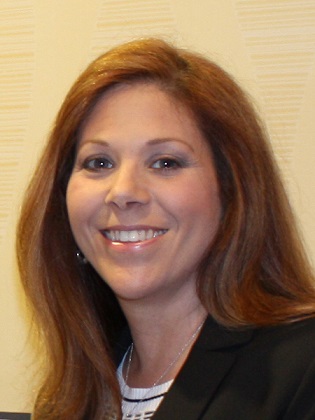 Kenlyn Foster serves her community as Judge for Blount County, Tennessee, USA, General Sessions Court, Division II, and exercises concurrent jurisdiction as Juvenile Court Judge. Before her election in 2014, she served as an Assistant District Attorney General. She is a graduate of the University of Tennessee and the University of Tennessee College of Law.
Kenlyn Foster serves her community as Judge for Blount County, Tennessee, USA, General Sessions Court, Division II, and exercises concurrent jurisdiction as Juvenile Court Judge. Before her election in 2014, she served as an Assistant District Attorney General. She is a graduate of the University of Tennessee and the University of Tennessee College of Law. Nevaeh Gilmore is a passionate advocate and dedicated professional who has transformed her own life challenges into a mission to uplift others. Despite beginning her motherhood journey as a single mother at 19, she is now married and thriving personally, bringing her lived experience into her work with a deep commitment to helping those impacted by trauma and adversity. Having spent 10 years in foster care and overcoming physical, mental, and sexual abuse, Nevaeh understands the complexities of healing from life’s most difficult circumstances.
Nevaeh Gilmore is a passionate advocate and dedicated professional who has transformed her own life challenges into a mission to uplift others. Despite beginning her motherhood journey as a single mother at 19, she is now married and thriving personally, bringing her lived experience into her work with a deep commitment to helping those impacted by trauma and adversity. Having spent 10 years in foster care and overcoming physical, mental, and sexual abuse, Nevaeh understands the complexities of healing from life’s most difficult circumstances.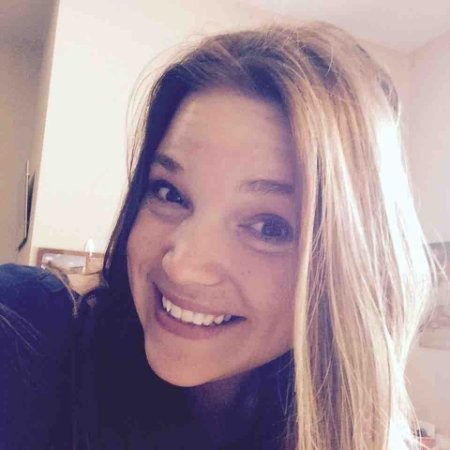 Emilyn Wahl has over 20 years of experience in the supervised visitation field, beginning her career as a visitation monitor and advancing to her current role as Director of Parenting Time Centers. She oversees five Parenting Time Centers across West Central Minnesota, providing leadership and operational management to ensure high-quality, trauma-informed services for families. Emilyn’s educational background includes studies at Minnesota State Community and Technical College, the University of Minnesota Moorhead, and graduating as a Paralegal from Penn Foster. She currently serves as the Immediate Past President of the Worldwide Supervised Visitation Network (SVN), and is an active member of the Minnesota Supervised Visitation Committee, the Association of Family and Conciliation Courts (AFCC), and the Early Childhood Initiative. A passionate advocate for innovation and collaboration, Emilyn is known for bringing forward-thinking ideas to the field and fostering meaningful dialogue among professionals. She has presented numerous webinars hosted by SVN and AFCC and teaches Parents Forever, Minnesota’s court-mandated divorce education program. Beyond her professional work, Emilyn is deeply committed to community impact. She has volunteered with Habitat for Humanity for over two decades, with a special focus on promoting affordable housing. In her free time, she enjoys hiking Minnesota’s scenic trails, cheering on her husband at the racetrack, tackling home improvement projects, and spending quality time with her family.
Emilyn Wahl has over 20 years of experience in the supervised visitation field, beginning her career as a visitation monitor and advancing to her current role as Director of Parenting Time Centers. She oversees five Parenting Time Centers across West Central Minnesota, providing leadership and operational management to ensure high-quality, trauma-informed services for families. Emilyn’s educational background includes studies at Minnesota State Community and Technical College, the University of Minnesota Moorhead, and graduating as a Paralegal from Penn Foster. She currently serves as the Immediate Past President of the Worldwide Supervised Visitation Network (SVN), and is an active member of the Minnesota Supervised Visitation Committee, the Association of Family and Conciliation Courts (AFCC), and the Early Childhood Initiative. A passionate advocate for innovation and collaboration, Emilyn is known for bringing forward-thinking ideas to the field and fostering meaningful dialogue among professionals. She has presented numerous webinars hosted by SVN and AFCC and teaches Parents Forever, Minnesota’s court-mandated divorce education program. Beyond her professional work, Emilyn is deeply committed to community impact. She has volunteered with Habitat for Humanity for over two decades, with a special focus on promoting affordable housing. In her free time, she enjoys hiking Minnesota’s scenic trails, cheering on her husband at the racetrack, tackling home improvement projects, and spending quality time with her family.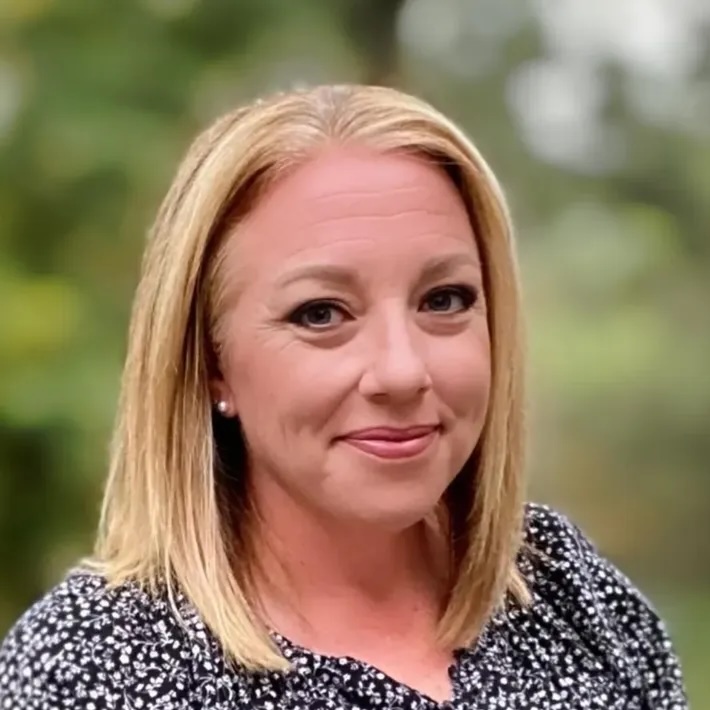
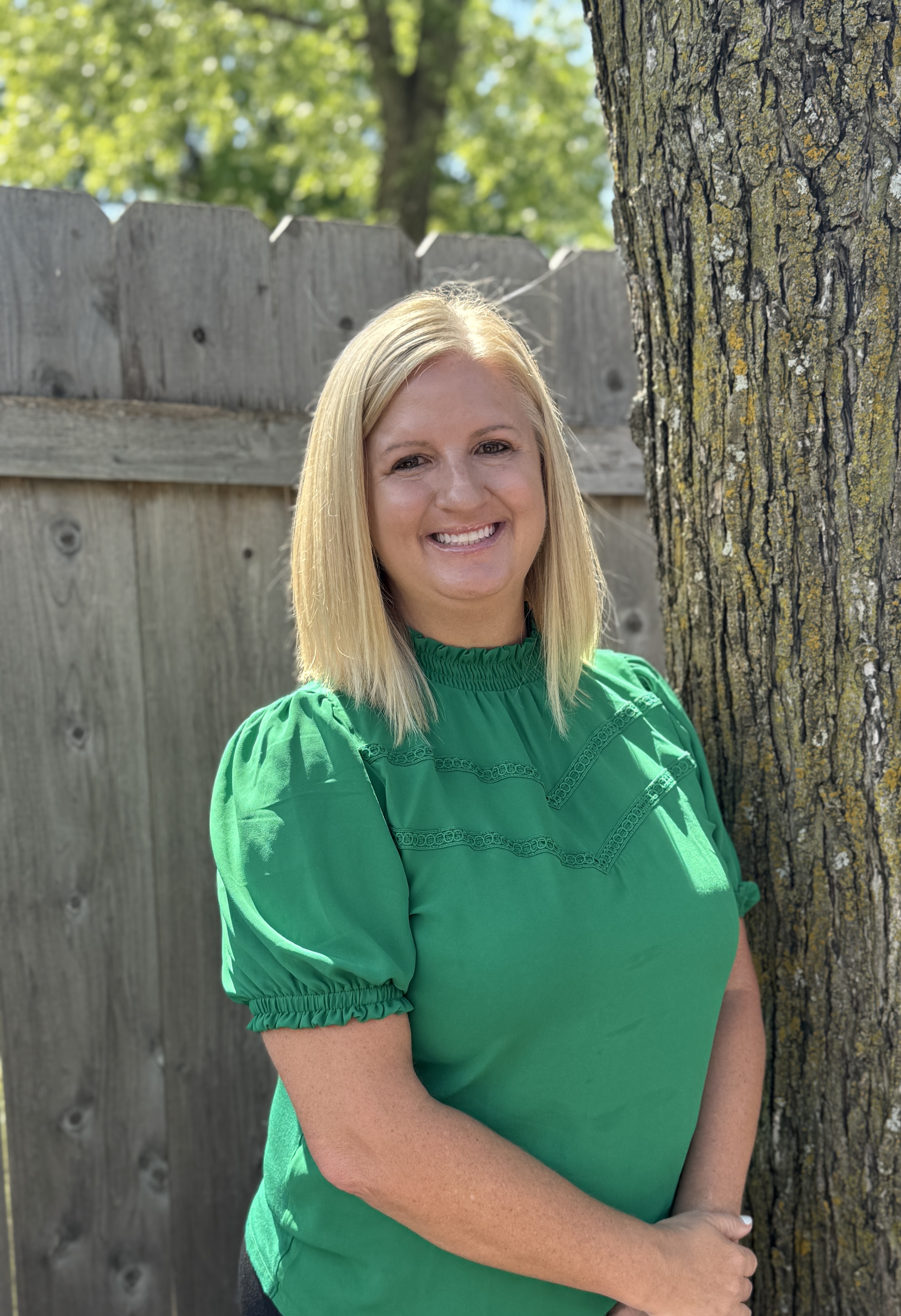 Tara is a current resident of Emporia, KS. Tara attended Emporia State University from 1999-2004, majoring in Psychology. After college, Tara worked for TFI Family Services from 2006-2015, a child welfare agency working directly with at-risk families and children in the foster care system. While at TFI Family Services, Tara became certified as a TIPS-MAPP trainer (Trauma Informed Partnering For Safety and Permanence– Model Approach To Partnerships In Parenting) to provide training and classes to those who are going through the process of becoming licensed foster or adoptive parents to children in the foster care system. In 2015, Tara worked for the Lyon County Attorney's Office as a Legal Assistant, where she gained more knowledge about the legal system and child in need of care cases. In 2016, Tara accepted the Director position at the SOS Child Visitation & Exchange Center and is still the current Director. Tara is the current President of the Kansas Network of Visitation Providers, a non-profit organization to collaborate and network with other visitation providers in KS. Tara has also been a consultant for other visitation programs in the state of KS that are new to providing services or in the process of starting a new program. Tara has been married for 20 years and has an 11-year-old son, Jaxon, who was adopted at birth. Jaxon has an open adoption with his birth family, in which Tara is very passionate about keeping Jaxon connected to his birth family.
Tara is a current resident of Emporia, KS. Tara attended Emporia State University from 1999-2004, majoring in Psychology. After college, Tara worked for TFI Family Services from 2006-2015, a child welfare agency working directly with at-risk families and children in the foster care system. While at TFI Family Services, Tara became certified as a TIPS-MAPP trainer (Trauma Informed Partnering For Safety and Permanence– Model Approach To Partnerships In Parenting) to provide training and classes to those who are going through the process of becoming licensed foster or adoptive parents to children in the foster care system. In 2015, Tara worked for the Lyon County Attorney's Office as a Legal Assistant, where she gained more knowledge about the legal system and child in need of care cases. In 2016, Tara accepted the Director position at the SOS Child Visitation & Exchange Center and is still the current Director. Tara is the current President of the Kansas Network of Visitation Providers, a non-profit organization to collaborate and network with other visitation providers in KS. Tara has also been a consultant for other visitation programs in the state of KS that are new to providing services or in the process of starting a new program. Tara has been married for 20 years and has an 11-year-old son, Jaxon, who was adopted at birth. Jaxon has an open adoption with his birth family, in which Tara is very passionate about keeping Jaxon connected to his birth family.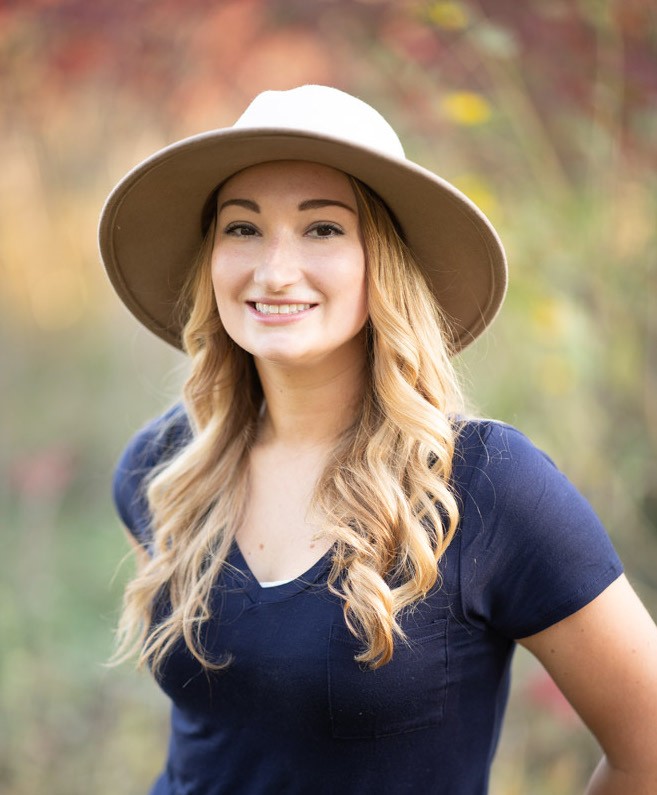 Larissa joined the SOS Child Visitation & Exchange center in May of 2022. She worked as a part-time supervisor while staying home to raise her 3 young children. In November of 2023 Larissa was offered the full-time position of SOS Child Visitation & Exchange Center Coordinator.
Larissa joined the SOS Child Visitation & Exchange center in May of 2022. She worked as a part-time supervisor while staying home to raise her 3 young children. In November of 2023 Larissa was offered the full-time position of SOS Child Visitation & Exchange Center Coordinator. 